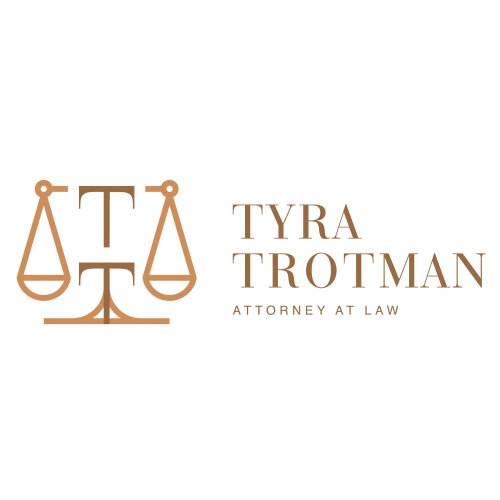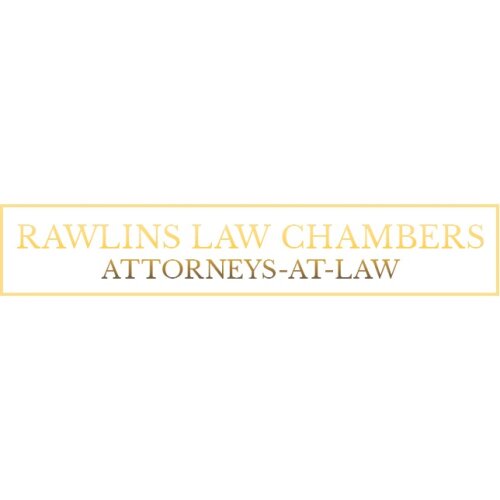Best Public-Private Partnerships (PPP) Lawyers in Barbados
Share your needs with us, get contacted by law firms.
Free. Takes 2 min.
Or refine your search by selecting a city:
List of the best lawyers in Barbados
About Public-Private Partnerships (PPP) Law in Barbados
Public-Private Partnerships, commonly called PPPs, are arrangements where the government collaborates with private sector companies to fund, develop, or operate projects that serve public needs. In Barbados, PPPs have become increasingly important for developing infrastructure such as roads, airports, healthcare facilities, and utilities. By combining public oversight and private expertise, PPPs aim to deliver high-quality public services more efficiently and cost-effectively. The legal framework for PPPs in Barbados has evolved to support these collaborations, providing guidelines and standards for both government agencies and private investors.
Why You May Need a Lawyer
Engaging in a PPP can be legally complex. Whether you are a private investor, a contractor, or a public official, legal guidance ensures that your rights and interests are protected. Common situations where legal help is necessary include:
- Negotiating PPP contracts and ensuring fair terms
- Reviewing compliance with local regulations and government procedures
- Resolving disputes related to project performance or payment structures
- Advising on risk allocation and financial obligations
- Assisting with tendering and procurement processes
- Interpreting public policy objectives and their legal impact on the project
- Managing regulatory licensure and approvals for operations
A lawyer can help at every stage, from project conception to ongoing management or even project termination. Their expertise helps avoid costly legal mistakes and ensures your PPP operates within Barbados law.
Local Laws Overview
Barbados has established several key laws and regulations relevant to PPPs. These include public procurement laws, contract law, environmental regulations, and sector-specific statutes for infrastructure, energy, and transportation. Key aspects include:
- Public Procurement Procedures: Government agencies must follow transparent and competitive bidding processes when selecting private partners.
- Contractual Framework: Legally binding agreements set out the responsibilities, risk sharing, and performance standards for each partner.
- Financial Regulations: Rules related to project financing, government guarantees, and revenue sharing must be met.
- Regulatory Approvals: All projects must align with environmental and planning laws to ensure sustainable development.
- Monitoring and Evaluation: Public bodies are required to monitor PPP contracts to ensure that service delivery meets agreed-upon standards.
While there is no standalone PPP Act in Barbados as of the date of this guide, the country often uses a combination of existing public procurement and sectoral regulations to structure PPP deals. It is crucial to seek legal advice to understand which laws apply to your specific project.
Frequently Asked Questions
What is a Public-Private Partnership (PPP)?
A PPP is a cooperation between government entities and private companies to finance, build, and operate projects that benefit the public, such as infrastructure, healthcare, or utilities.
Are there specific PPP laws in Barbados?
Barbados does not currently have a dedicated PPP Act, but various laws relating to public procurement, contract regulations, and sector-specific statutes govern PPPs.
Who regulates PPPs in Barbados?
PPPs are primarily overseen by the Ministry of Finance and Economic Affairs and relevant sectoral ministries. The government may also establish ad hoc committees or procurement boards for specific projects.
What types of projects can be structured as PPPs?
Typical PPP projects in Barbados include roads, ports, utility services, healthcare facilities, tourism developments, and energy infrastructure.
How does the tendering process work for PPPs?
Government agencies issue a Request for Proposals (RFP) through a public tender process. Private companies submit bids, which are then evaluated for technical and financial suitability.
What are the common risks in PPPs?
Risks include construction delays, cost overruns, regulatory changes, financing challenges, and uncertainties in demand or revenue generation. Legal advice can help allocate and manage these risks appropriately.
Can foreign investors participate in PPPs in Barbados?
Yes, foreign investors can participate, although they must comply with local investment, tax, and labor laws and may need specific government approvals.
What happens if there is a dispute in a PPP?
PPP contracts typically include dispute resolution mechanisms such as negotiation, mediation, or arbitration. If these fail, the dispute may be settled in Barbadian courts.
How long do PPP contracts usually last?
Contract duration varies depending on the project, but most last from five to 30 years, depending on the complexity, investment required, and expected return on investment.
What should I do before entering into a PPP agreement?
It is strongly recommended to consult with a lawyer to carefully review all documents, assess legal risks, and ensure compliance with Barbadian law before signing any PPP contract.
Additional Resources
The following organizations and government bodies provide helpful information and oversight for PPPs in Barbados:
- Ministry of Finance and Economic Affairs - Oversees government investments and PPP projects
- Barbados Investment and Development Corporation - Supports foreign and local investment ventures, including PPPs
- Public Procurement Department - Provides guidance on government buying and procurement law
- Barbados Chamber of Commerce and Industry - Offers insights and networking opportunities for private sector participants in PPPs
- Local law firms specializing in PPP, infrastructure, and procurement law
Next Steps
If you are considering entering into a Public-Private Partnership in Barbados, here are the recommended steps to protect your interests:
- Gather detailed information about the proposed project and your intended role.
- Identify the relevant government ministry or agency responsible for the PPP.
- Consult with a qualified lawyer who specializes in PPPs, procurement, and contract law in Barbados.
- Request a legal review of all contracts, bids, and related documents.
- Ensure compliance with registration, licensing, and other regulatory requirements.
- Stay informed on updates to local policies or laws that could impact the PPP sector.
- Do not sign any agreement or make commitments until you have received comprehensive legal advice.
By following these steps, you can better navigate the complexities of PPPs and safeguard your investment or public interest in Barbados.
Lawzana helps you find the best lawyers and law firms in Barbados through a curated and pre-screened list of qualified legal professionals. Our platform offers rankings and detailed profiles of attorneys and law firms, allowing you to compare based on practice areas, including Public-Private Partnerships (PPP), experience, and client feedback.
Each profile includes a description of the firm's areas of practice, client reviews, team members and partners, year of establishment, spoken languages, office locations, contact information, social media presence, and any published articles or resources. Most firms on our platform speak English and are experienced in both local and international legal matters.
Get a quote from top-rated law firms in Barbados — quickly, securely, and without unnecessary hassle.
Disclaimer:
The information provided on this page is for general informational purposes only and does not constitute legal advice. While we strive to ensure the accuracy and relevance of the content, legal information may change over time, and interpretations of the law can vary. You should always consult with a qualified legal professional for advice specific to your situation.
We disclaim all liability for actions taken or not taken based on the content of this page. If you believe any information is incorrect or outdated, please contact us, and we will review and update it where appropriate.
Browse public-private partnerships (ppp) law firms by city in Barbados
Refine your search by selecting a city.












